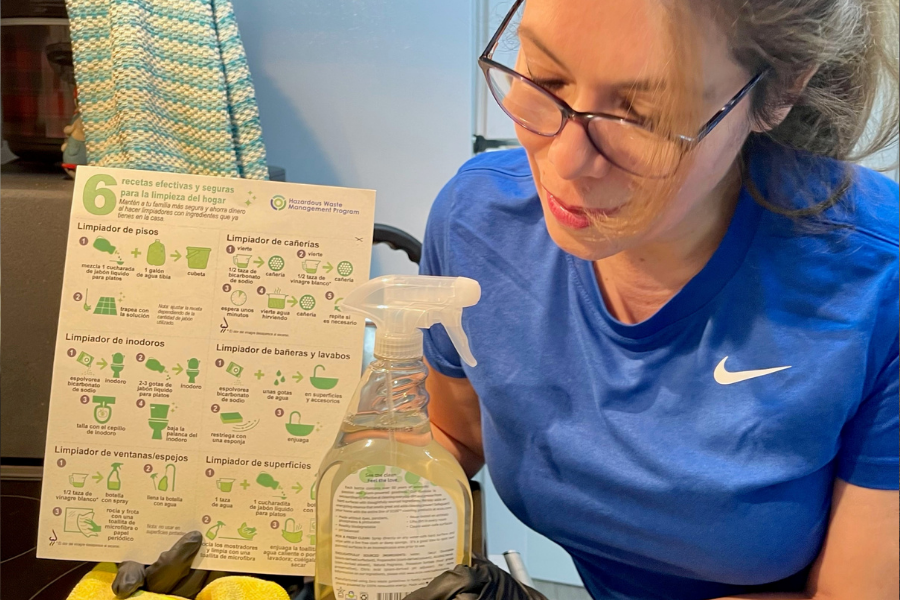
How education and comprehensive care leads to a healthier community
At the Hazardous Waste Management Program, we come to work every day to protect people and the environment in King County from hazardous chemical exposure. We cannot do this work alone. We partner with local organizations, such as Sea Mar Community Health Centers (Sea Mar), to work towards the shared vision of a healthy, safe, and clean Puget Sound Region.
Sea Mar provides quality, comprehensive health, human, housing, educational and cultural services to diverse communities throughout Washington state. Over the past three years, the Haz Waste Program and Sea Mar have partnered to provide education and outreach services to reduce hazardous exposure to cleaning chemicals in Latino communities.
Through ongoing engagement with the Latino community, the Haz Waste Program learned that top health concerns around household cleaning are the overuse of disinfectants and the possible hazardous exposure from mixing chemicals. In response, Sea Mar and the Haz Waste Program worked side by side to develop a training program that addresses the health risks of these two common practices.
According to data from the Washington Poison Center, there was a 62% increase in bleach exposures from misuse during the COVID-19 pandemic. It was clear that providing education about safer cleaning and disinfecting was more crucial than ever in 2020. Sea Mar staff had to adapt their in-person trainings by using digital platforms to respond to this growing need.
“COVID taught us to be creative in continuing to address the needs of the community,” explained Ninfa Quiroz, Community Relations Director at Sea Mar. “We used radio and Facebook to conduct two workshops, which were very successful. In total, there were over 300 participants.”
In addition to the workshops, Sea Mar’s team provided 100 virtual in-home trainings in 2020. In a follow-up two months after the trainings, 96% of participants were still using the safer cleaning products and recipes.
Ninfa shares that “Without providing education, the government will continue to spend so much money treating illnesses. It is much more cost-effective to treat illnesses at the source, instead of just the symptoms.” The Haz Waste Program’s Safer Cleaning Partnership with Sea Mar is an example of how investing in education can result in health benefits for individuals and the larger community.
To learn more about Sea Mar and their work, visit seamar.org. More information is also available in the Sea Mar Safer Cleaning Partnership report.